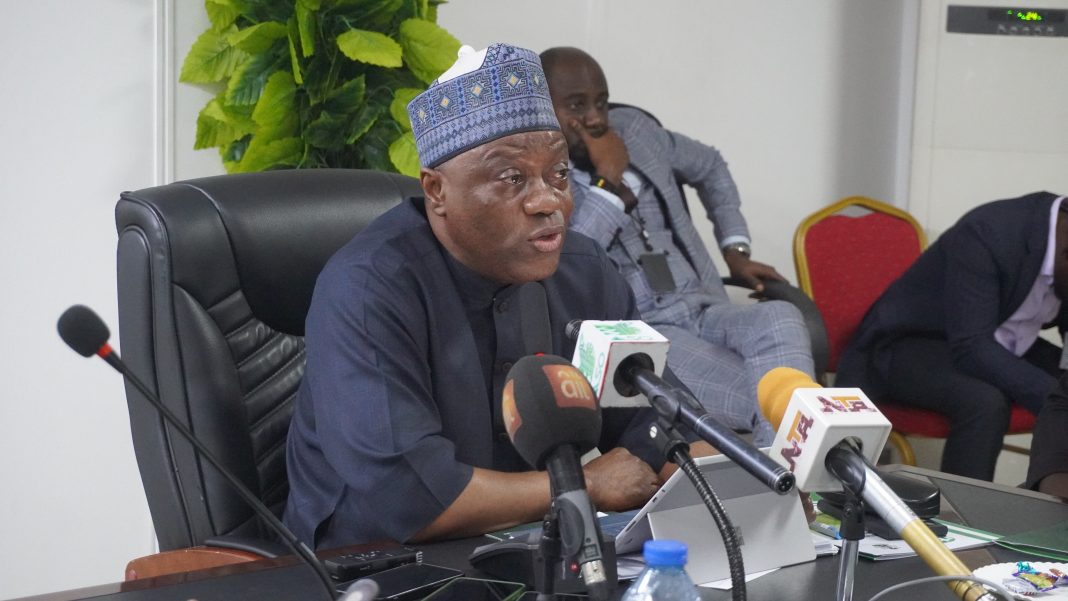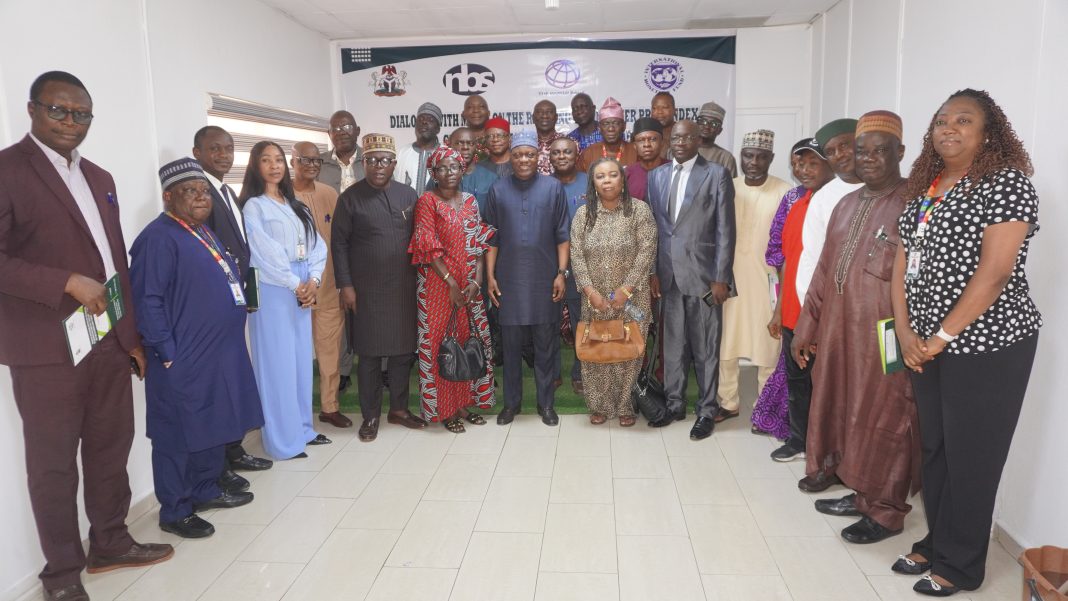By Michael Onjewu, Abuja
The National Bureau of Statistics (NBS) has said that the methodology adopted for the rebasing of the Gross Domestic Product (GDP) and Consumer Prices Index (CPI) align Nigeria’s economic data with current realities.
The GDP measures the total value of goods and services produced in a country while the CPI measures the average change in the prices paid by consumers for goods and services over a period of time.
Speaking at a media engagement at the NBS headquarters in Abuja on Thursday, Prince Adeyemi Adeniran, the Statistician General of the Federation and Chief Executive Officer of the NBS, said CPI rebasing involves updating the weight and price reference periods to better reflect current consumption patterns, while GDP Rebasing entails replacing an outdated base year with a more recent one, allowing for improved accuracy in measuring economic growth.
Adeniran noted that periodic rebasing, conducted every five years, helps to account for structural changes in the economy over time and offers a more accurate snapshot of the economy’s composition.
“GDP rebasing provides significant benefits by aligning economic data with the current realities of the economy. It improves the accuracy of growth measurements, supports better policymaking, and enhances the credibility of economic data both domestically and internationally,” he said.
The Statistician-General said the NBS has also conducted the Nigerian Living Standards Survey (NLSS) for 2022/23 to generate a national poverty headline rate, along with other essential indicators related to household welfare, consumption, and expenditure.
He noted that the NLSS is conducted every four to five years, with the last round completed in 2018/2019, which reported a poverty rate of 40.1 per cent. He stressed that data collection for the survey spans a year to capture seasonal variations in household consumption and expenditure.
“Households whose total consumption of both food and non-food falls below a certain threshold are classified as poor,” Adeniran stated.
The Statistician-General reiterated the NBS’s commitment to transparency and accountability in the data production process, in line with the United Nations fundamental principles of official statistics. He urged the media to ensure that data is reported accurately and objectively.





